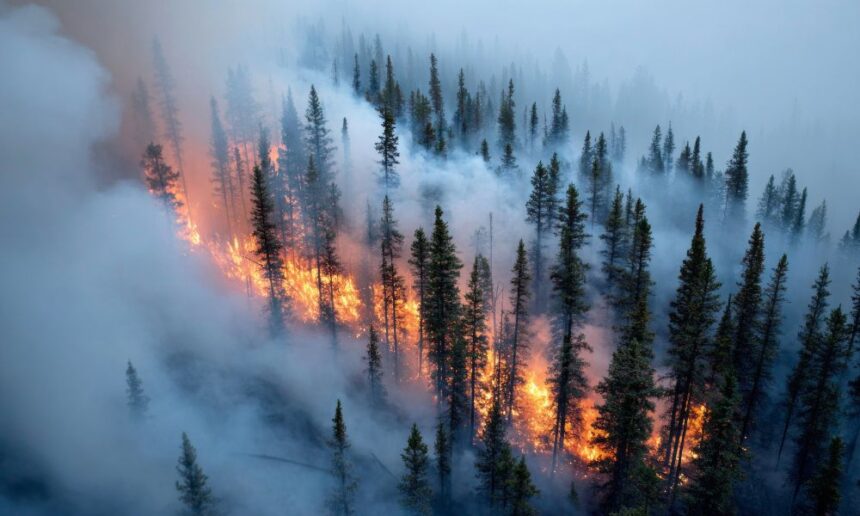When wildfires engulfed Fort McMurray in 2016, the insurance industry faced what was then Canada’s costliest natural disaster. Eight years later, as climate-driven catastrophes intensify across the country, Aviva Canada’s response demonstrates how corporate values translate to real-world crisis management.
“Insurance is fundamentally about being there when people need you most,” explains Jason Storah, CEO of Aviva Canada, during our recent interview at the company’s Toronto headquarters. “When catastrophic events happen, that’s when our purpose becomes most evident—it’s about more than policies and premiums; it’s about helping communities rebuild.”
The insurance giant has revamped its catastrophe response strategy following lessons learned from Fort McMurray, where insurers collectively paid out nearly $4 billion in claims. Aviva’s approach now emphasizes rapid deployment of adjusters, immediate emergency funding for displaced policyholders, and streamlined claims processing specifically designed for large-scale disasters.
Climate data from Environment Canada shows a troubling trend: severe weather events that once occurred every 40 years now happen every 6 years on average. For the insurance industry, this has translated to annual catastrophic losses exceeding $2 billion in nine of the past twelve years, compared to below $1 billion throughout most of the 1990s and early 2000s.
“The reality of climate change means we need to be more prepared than ever,” notes Storah. “We’ve invested heavily in predictive analytics to anticipate where disasters might strike, allowing us to pre-position resources and personnel.”
This investment was evident during the 2023 wildfire season, which displaced over 120,000 Canadians. Aviva deployed its catastrophe response team to affected regions before evacuation orders were even lifted, establishing mobile claims centers and partnering with local accommodations to house displaced policyholders.
Sarah Reynolds, an Aviva policyholder from Kelowna, describes the company’s response as “unexpectedly human.” After losing her home of 27 years, Reynolds received emergency funds within hours of contacting Aviva. “They called me daily just to check in, not even about the claim. That level of care makes an enormous difference when your world has just collapsed.”
Behind the scenes, Aviva has restructured its catastrophe response teams around values-based leadership principles. Teams receive trauma-informed training to better support clients experiencing profound loss. “Our adjusters aren’t just assessing damage; they’re often the first point of contact for people experiencing the worst day of their lives,” explains Hailey Morgan, Aviva’s Head of Claims Operations.
Industry analysts have noted this shift toward more compassionate catastrophe response across the sector. “The companies that will thrive in this era of climate uncertainty are those balancing financial prudence with genuine human concern,” says Dr. Rafael Chen, insurance sector specialist at the University of Toronto’s Rotman School of Management.
While catastrophe response captures headlines, Aviva’s longer-term strategy includes significant investment in climate resilience and prevention. The company has committed $5 million to community initiatives focused on flood mitigation infrastructure and wildfire prevention in high-risk regions across Canada.
Critics may question whether such corporate initiatives are merely public relations exercises, but the evidence suggests genuine operational change. Aviva’s catastrophe response satisfaction scores have increased by 28% since implementing their values-led approach, while claim resolution times have decreased by nearly a third.
As Canada faces increasingly frequent climate disasters, the question remains: can the insurance industry balance financial sustainability with the growing needs of communities on the climate frontlines? For companies like Aviva, the answer appears to lie in recognizing that corporate values aren’t just statements on a website but practical guidelines for responding to our most challenging moments.











